The concerning rise in 'hock burn' among British supermarket chickens
One third of broilers in leading UK supermarkets show skin damage caused by ammonia from excrement, says investigation
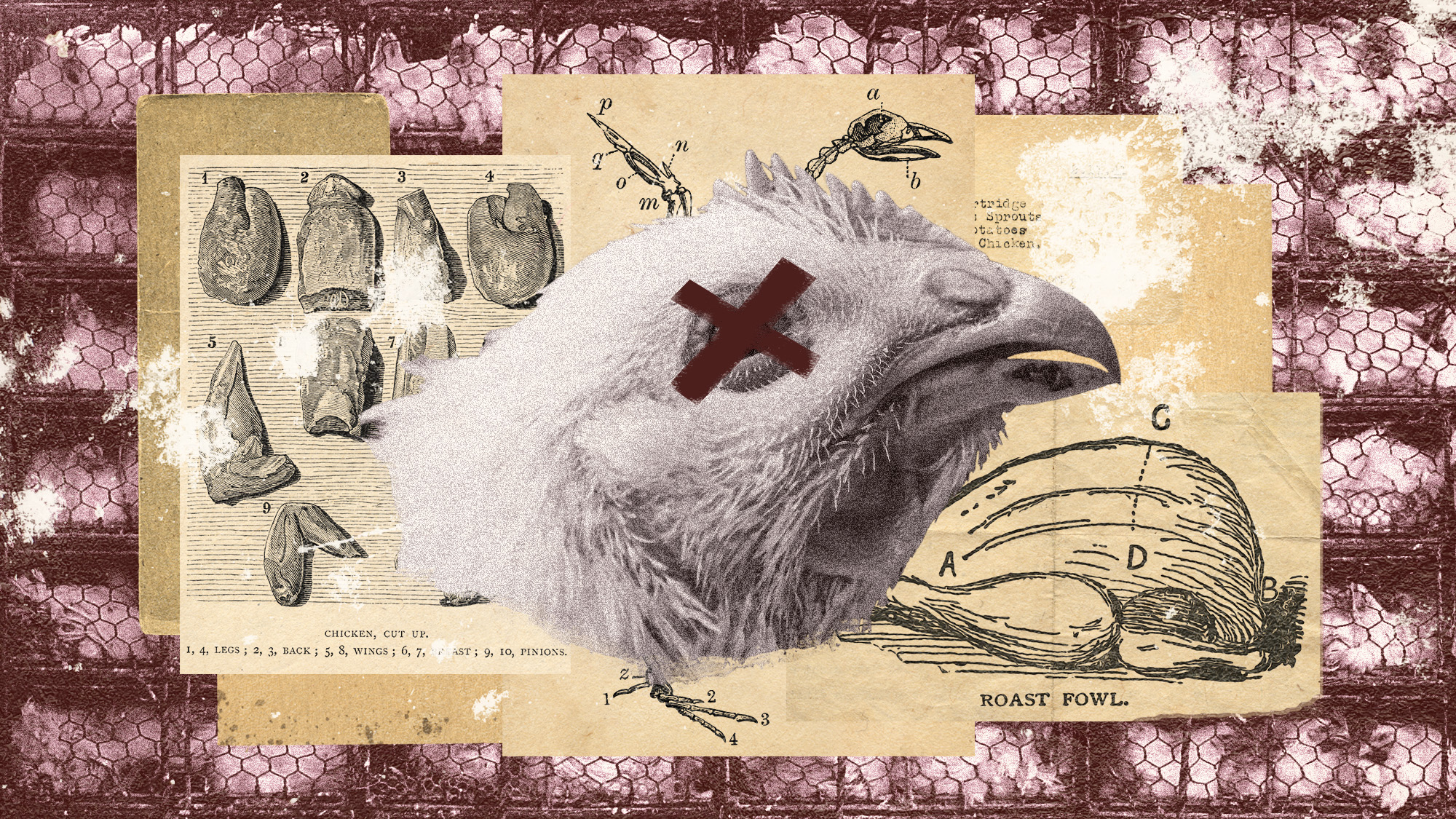
A free daily email with the biggest news stories of the day – and the best features from TheWeek.com
You are now subscribed
Your newsletter sign-up was successful
Millions of UK chickens are suffering skin damage from being forced to live packed together in their own waste, a new investigation has found.
"Hock burn", caused by ammonia in excrement, is visible on a third of supermarket birds, according to data analysed by the BBC. It is associated with a "high stocking density of birds", a result of "prolonged contact to moist, dirty litter", and shows up on prepared meat as brown ulcers on the back of the leg.
Although hock-burnt chicken is safe to eat, the amount of burn in a flock is an "industry-accepted indicator of wider welfare standards on farms", said BBC News's rural affairs producer Malcolm Prior. The issue is taken "very seriously", said the British Retail Consortium.
The Week
Escape your echo chamber. Get the facts behind the news, plus analysis from multiple perspectives.

Sign up for The Week's Free Newsletters
From our morning news briefing to a weekly Good News Newsletter, get the best of The Week delivered directly to your inbox.
From our morning news briefing to a weekly Good News Newsletter, get the best of The Week delivered directly to your inbox.
'Consequences of poor litter quality'
The UK's biggest farm and food assurance scheme, Red Tractor, sets a target of no more than 15% hock burn in their flocks. Health and welfare of meat chickens (known as broilers) is directly linked to litter quality, according to the government, and "conditions such as hock burn…are usually consequences of poor litter quality".
Current legislation requires that all chickens have permanent access to dry litter, said a Defra spokesperson.
But the "concerning" condition is "sadly, too common in many intensive farm settings", RSPCA poultry specialist Kate Parkes told the BBC.
The risk is "significantly higher when birds are poorly managed, genetically selected to grow very fast or reared in overcrowded conditions", she added.
A free daily email with the biggest news stories of the day – and the best features from TheWeek.com
The broadcaster asked the UK's 10 biggest supermarket chains, including Tesco, Sainsbury's, Waitrose, Aldi and Co-op, about the annual rates of hock burn in chickens they stock.
Co-op had the highest rate, with 36.7% of its poultry found to have hock marks, while Aldi reported 33.5%. "Every effort" was made to minimise the occurrence of hock burn, said a Co-op spokesperson, while an Aldi spokesperson added that it worked closely with suppliers to "ensure continuous improvement in our food".
Waitrose had the lowest hock-burn rate, at 2.7%. It told the BBC it had reduced hock marking levels by 80% between 2014 and 2022 by monitoring environmental conditions on farms and training farmers. "It's our ambition to make hock burn a thing of the past," a spokesperson said.
'Bred for extremely rapid growth'
Five chains – Asda, Morrisons, Iceland, Ocado and Lidl – refused to release their data.
But one animal welfare campaign group, Open Cages, has been focusing on Lidl for "store spot checks", said Science Times. Volunteers examined more than 500 whole chickens in 22 UK branches between September and November last year. They found that 74% showed signs of hock burn.
This burn is just "one symptom of a much larger problem", according to the group's co-founder, Connor Jackson. Many retailers source chicken farmers "keep chickens in overcrowded sheds and breed them for extreme and fast growth. This routinely leads to suffering for chickens".
The group's report claimed that members detected "white striping disease" in 94% of Lidl's packaged chicken breasts – a muscle disorder "characterised by white lines across the breast meat, linked to poultry growing to large sizes rapidly", said National World. Breast meat affected by white striping can be higher in fat, according to Open Cages.
Lidl said that Open Cages' findings did not match their own figures, and that the health of animals in its supply chain was "closely monitored, with regular independent audits carried out".
The British Poultry Council told the BBC that "drawing comparison between formal inspection and rigorous procedure versus a shop-shelf experiment has potential to mislead and misinform".
But Open Cages is calling on Lidl, and other British retailers, to sign up to the Better Chicken Commitment (BCC) – a set of international welfare standards for broiler hens.
Although it is only the UK's seventh biggest supermarket franchise, Lidl is (via the Schwarz group) the largest retailer in Europe. Jackson told National World that Lidl's support could help drive other chains to adopt the BCC.
"They have a uniquely powerful influence on the future of animal welfare," he said. "If Lidl moves on this, then everyone moves. So we feel that with great power comes great responsibility."
Harriet Marsden is a senior staff writer and podcast panellist for The Week, covering world news and writing the weekly Global Digest newsletter. Before joining the site in 2023, she was a freelance journalist for seven years, working for The Guardian, The Times and The Independent among others, and regularly appearing on radio shows. In 2021, she was awarded the “journalist-at-large” fellowship by the Local Trust charity, and spent a year travelling independently to some of England’s most deprived areas to write about community activism. She has a master’s in international journalism from City University, and has also worked in Bolivia, Colombia and Spain.
-
 Companies are increasingly AI washing
Companies are increasingly AI washingThe explainer Imaginary technology is taking jobs
-
 The 9 best steroid-free players who should be in the Baseball Hall of Fame
The 9 best steroid-free players who should be in the Baseball Hall of Famein depth These athletes’ exploits were both real and spectacular
-
 ‘Bad Bunny’s music feels inclusive and exclusive at the same time’
‘Bad Bunny’s music feels inclusive and exclusive at the same time’Instant Opinion Opinion, comment and editorials of the day
-
 Climate change could lead to a reptile ‘sexpocalypse’
Climate change could lead to a reptile ‘sexpocalypse’Under the radar The gender gap has hit the animal kingdom
-
 Why scientists want to create self-fertilizing crops
Why scientists want to create self-fertilizing cropsUnder the radar Nutrients without the negatives
-
 How drones detected a deadly threat to Arctic whales
How drones detected a deadly threat to Arctic whalesUnder the radar Monitoring the sea in the air
-
 ‘Jumping genes’: how polar bears are rewiring their DNA to survive the warming Arctic
‘Jumping genes’: how polar bears are rewiring their DNA to survive the warming ArcticUnder the radar The species is adapting to warmer temperatures
-
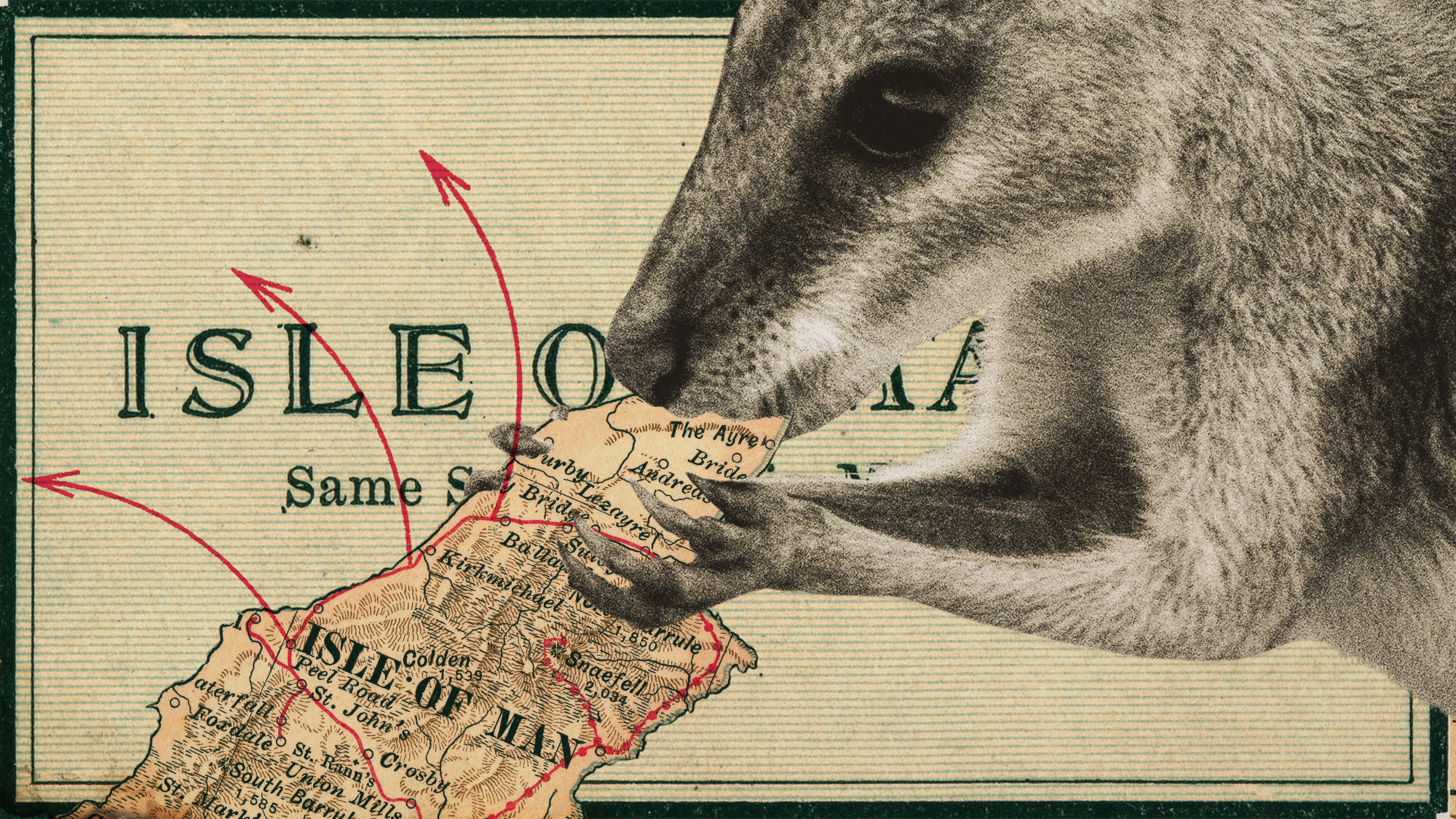 The UK’s surprising ‘wallaby boom’
The UK’s surprising ‘wallaby boom’Under the Radar The Australian marsupial has ‘colonised’ the Isle of Man and is now making regular appearances on the UK mainland
-
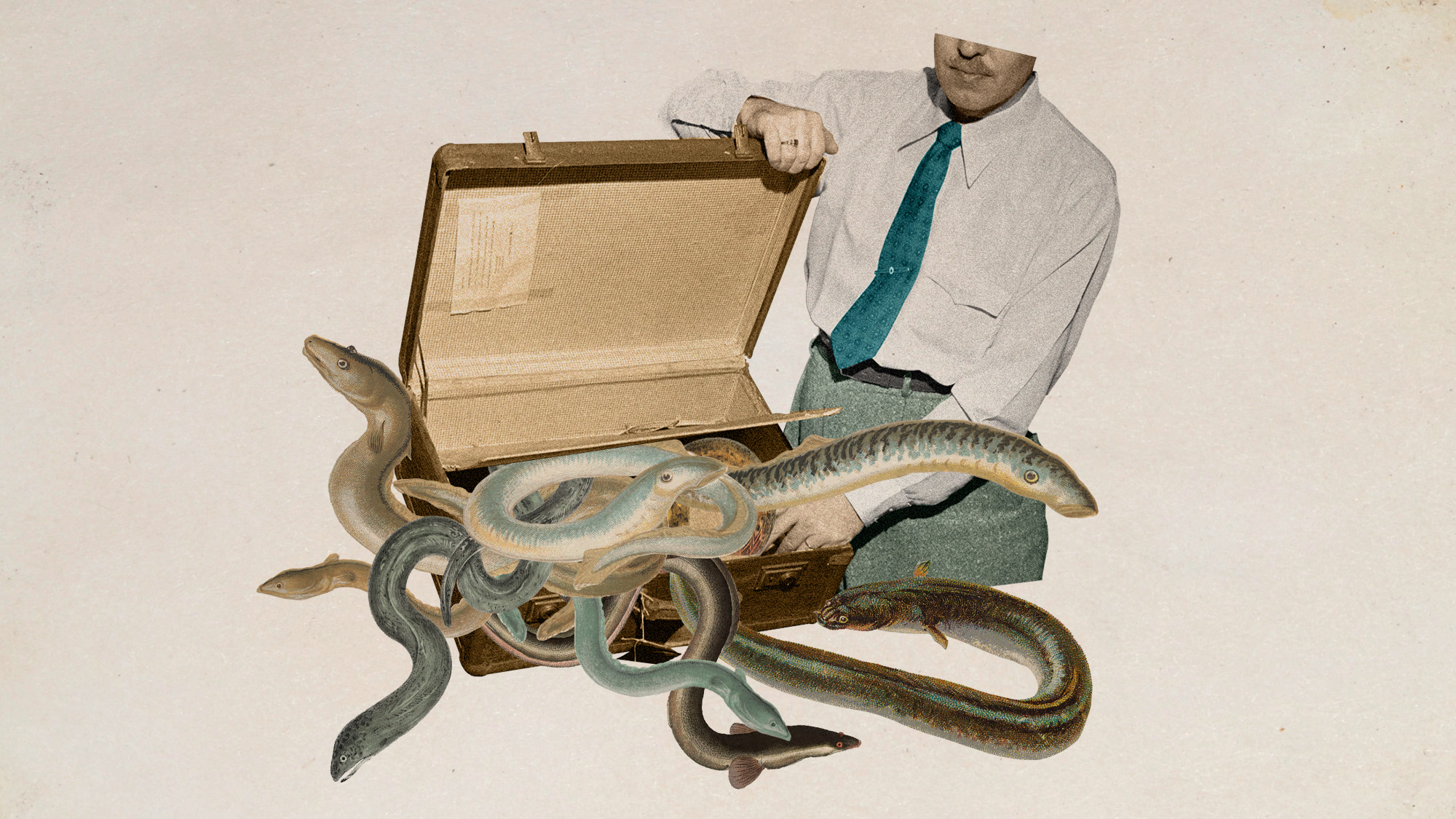 Eel-egal trade: the world’s most lucrative wildlife crime?
Eel-egal trade: the world’s most lucrative wildlife crime?Under the Radar Trafficking of juvenile ‘glass’ eels from Europe to Asia generates up to €3bn a year but the species is on the brink of extinction
-
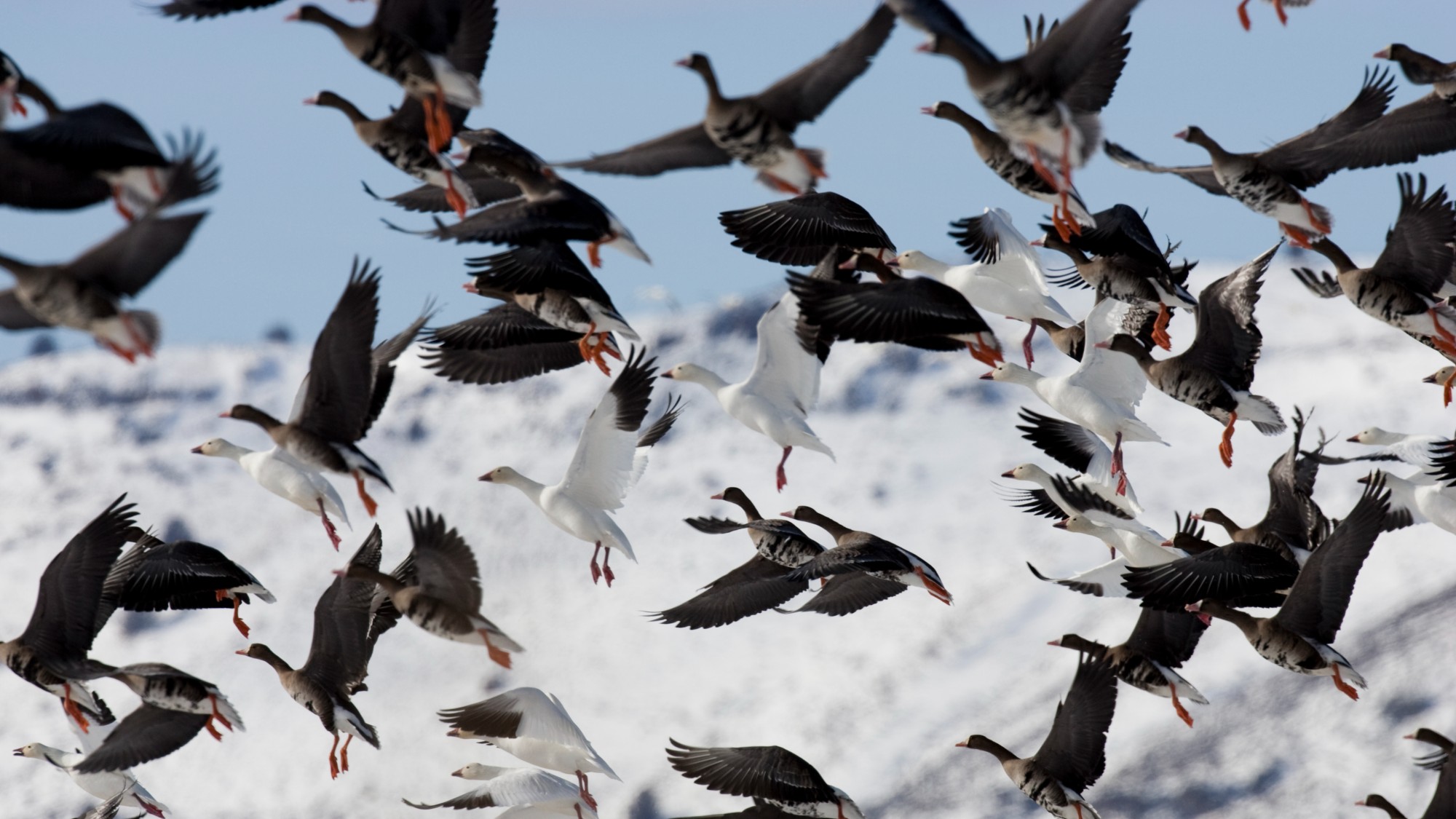 Icarus programme – the ‘internet of animals’
Icarus programme – the ‘internet of animals’The Explainer Researchers aim to monitor 100,000 animals worldwide with GPS trackers, using data to understand climate change and help predict disasters and pandemics
-
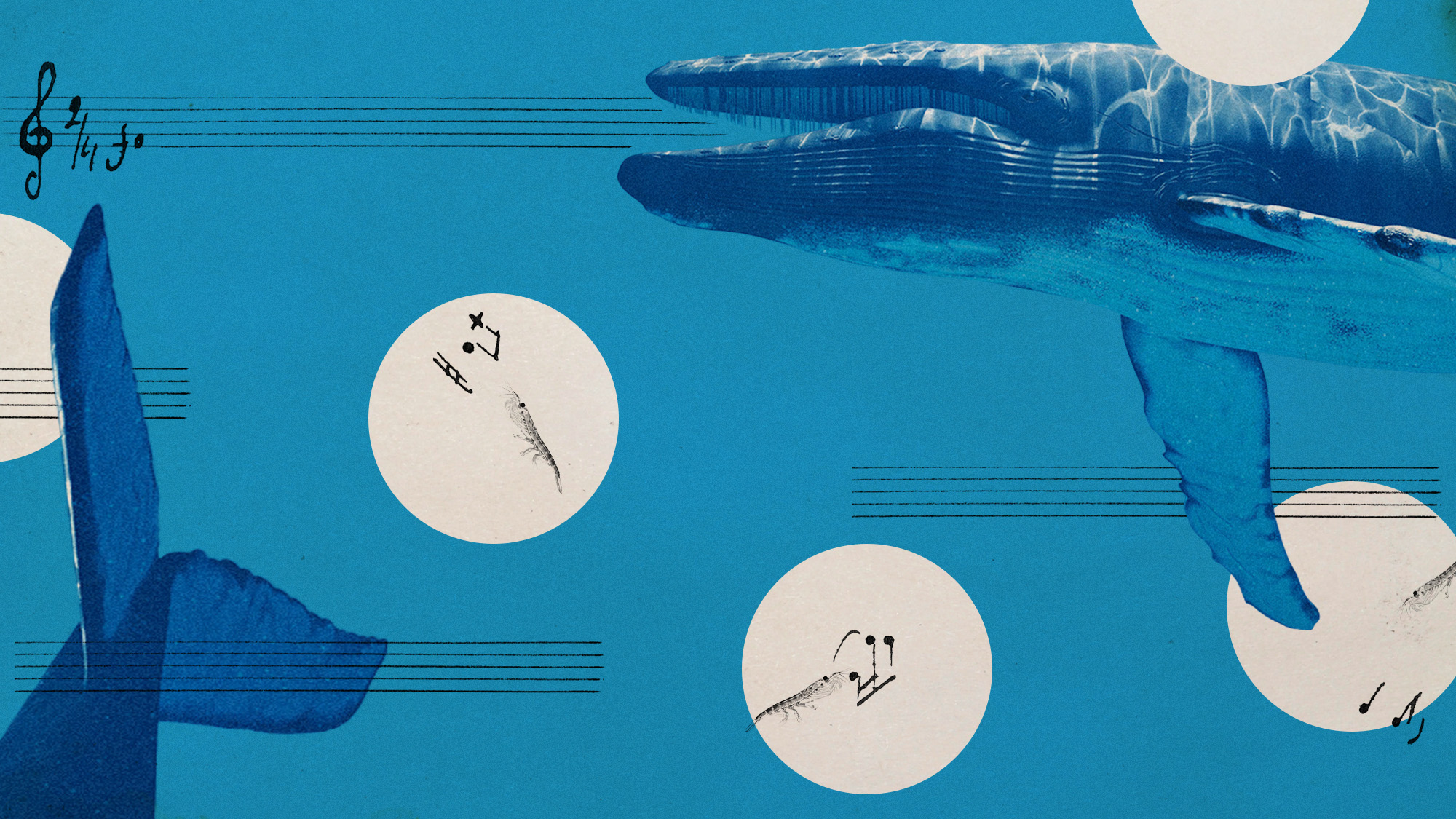 Blue whales have gone silent and it's posing troubling questions
Blue whales have gone silent and it's posing troubling questionsUnder the radar Warming oceans are the answer